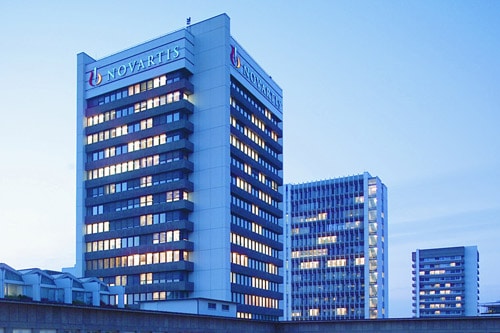
Novartis can now challenge Pfizer’s blockbuster breast cancer drug Ibrance in Europe after gaining approval for its rival CDK4/6 inhibitor Kisqali from the EMA.
The EU regulator has cleared Kisqali (ribociclib) for the first-line treatment of advanced breast cancer in combination with an aromatase inhibitor such as letrozole, anastrozole or exemestane in women with hormone receptor-positive, HER2-negative tumours, five months after a green light for the drug in the US.
Novartis can now compete with Ibrance (palbociclib) on two fronts as it tries to chase down Pfizer’s drug, which brought in $2.1bn in sales last year and – according to EvaluatePharma – will grow into a $6bn product in 2022, well ahead of Kisqali which it says will be a $1.6bn brand by that year.
Novartis said it would launch the new drug immediately in the UK, and “eagerly awaits” a decision on NHS coverage for the new drug from the National Institute for Health and Care Excellence (NICE). Ibrance was turned down by NICE in draft guidance earlier this year, with the cost-effectiveness body arguing its £79,650 per course list price was too high, and Pfizer has been providing it for free while it awaits a final verdict.
Novartis had not responded to enquiries about the UK pricing for Kisqali as this article went to press.
In the US, Novartis launched its drug with a flexible pricing scheme that it says undercuts Ibrance, which analysts have suggested is designed to overcome one ease-of-use disadvantage versus its rival – namely that according to US labelling Kisqali-treated patients will need ECG monitoring before starting treatment and two weeks later.
The EU approval is based on the phase III MONALEESA-2 trial, which was halted early when it showed that giving ribociclib with letrozole reduced the risk of death or the cancer worsening by 44%, compared to those receiving the aromatase inhibitor alone.
“Ribociclib, which is an oral treatment that can be taken at home, slows down the progression of advanced breast cancer for an average of over two years in combination with an aromatase inhibitor in postmenopausal women,” said Dr Mark Verrill, consultant medical oncologist at the Freeman Hospital, Newcastle.
“I had first-hand experience of using ribociclib in the MONALEESA-2 trial, and look forward to a swift agreement with NICE so that access is not an issue for postmenopausal women in England and Wales who could be offered this new treatment.”
Meanwhile, Novartis may not be the only competition for Ibrance in the not-too-distant future, as Eli Lilly is making its way through late-stage clinical development with abemaciclib, and is due to report pivotal data before the end of the year.




